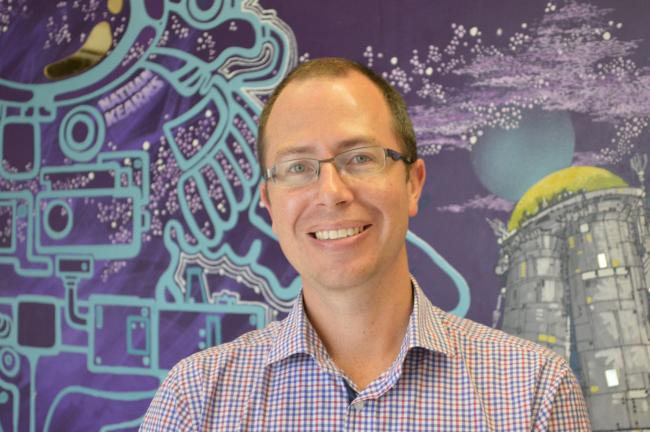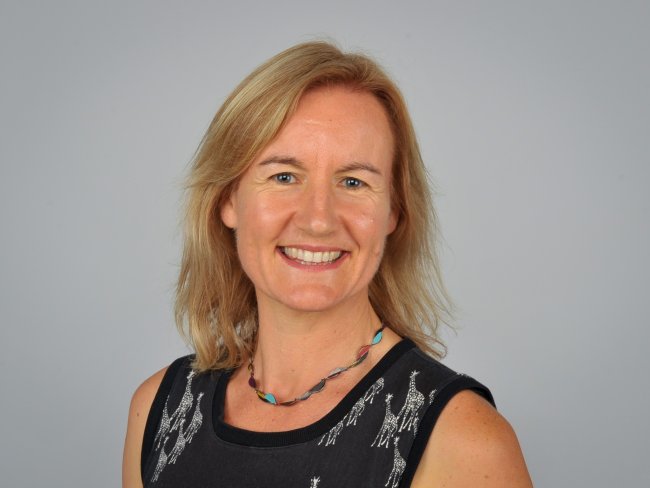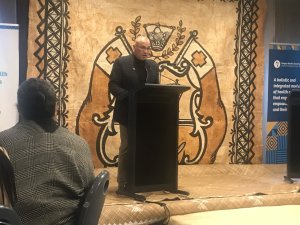Otolaryngologist, head and neck surgeon Francis T. Hall discusses the evaluation of thyroid nodules, which primarily aims to determine the likelihood of malignancy. He then reviews the treatment of thyroid nodules and thyroid cancer, including recent advances in management
Amid global shortage, Ozempic approved for type 2 diabetes
Amid global shortage, Ozempic approved for type 2 diabetes

Because of TikTok stuff and the enthusiasm of people to take medicines for weight loss, there has been a worldwide shortage
MedSafe has given the tick to semaglutide (Ozempic) but the drug’s popularity for weight loss among celebrities overseas has created a shortage.
The medicines regulator approved the drug as a prescription-only medicine for adults with insufficiently controlled type 2 diabetes, alongside diet and exercise, as monotherapy when metformin is not tolerated or contraindicated, and in addition to other medicinal products. It comes as a weekly injection.
Ozempic has not been approved for weight loss in this country.
The drug is made by Danish company Novo Nordisk, which has an Auckland branch. The company also manufactures and imports liraglutide for weight management (Saxender) and for type 2 diabetes (Victoza).
Novo Nordisk says it welcomes Medsafe’s approval of Ozempic in New Zealand. Senior clinical, medical, regulatory and pharmacovigilance director Ana Svensson tells New Zealand Doctor Rata Aotearoa via email the company is exploring options to provide access to the medication for people living with type 2 diabetes in New Zealand.
Drug funder Pharmac hasn’t received a funding application for Ozempic.
Pharmac director of operations Lisa Williams says via email: “Pharmac does fund liraglutide and dulaglutide and we currently have sufficient stock to meet the demand of those who need it.”
Paediatric endocrinologist Ben Wheeler says Ozempic is only for adults, so he won’t be prescribing it. However, Dr Wheeler, an associate professor at the University of Otago and Te Whatu Ora Southern paediatrician, says people in the field are pleased to see any movement in what’s approved.
Medsafe approval is a no-brainer given the convincing data on Ozempic, he says, but the issue will be getting it funded and securing supply.
If Pharmac does not pay for it, only the wealthy will be able to afford the treatment, which is approximately $100 to $1000 a month depending on the dose, he says.
Ozempic is a glucagon-like peptide 1 agonist that works centrally on appetite suppression. Dr Wheeler says it seems to help regulate appetite and slow gastro emptying, “meaning people feel full longer”.
“The drug also makes people more sensitive to the activity of insulin, so the insulin you have works better.”
Side effects such as nausea and heartburn compare well with other diabetes drugs. GLP-1 agonists have been around since the mid-2000s so are not new or unexplored. This is a newer version of it, Dr Wheeler points out. Pharmac funds another GLP-1 agonist, dulaglutide (Trulicity).
Dr Wheeler says Ozempic is meant for severe diabetics but is being misused by a handful of celebrities. Some overseas people who have a healthy body shape are using it for weight loss, which puts them at risk of an eating disorder, he says.
Endocrinologist Rosemary Hall is also concerned about the misuse of the drug internationally. “Because of TikTok stuff and the enthusiasm of people to take medicines for weight loss, there has been a worldwide shortage,” says Dr Hall.
A senior lecturer at Otago University and president of the New Zealand Society for the Study of Diabetes, she says the drug will escalate body image issues and eating disorders, which have risen massively due to COVID-19 lockdowns.
Dr Hall would like to see money invested in helping people with “real” weight issues.
She notes New Zealand differs from other countries in not approving Ozempic for obesity.
Although Saxenda is registered for weight loss, people must pay for it, says Dr Hall. “It would be good to have one funded for weight loss, especially for those with metabolic disorders because it would improve blood pressure and cardiovascular health,” she says.
The society spent a lot of time in discussions with Pharmac about approving dulaglutide. Its subsequent prioritising of Māori and Pacific peoples – for equity of prescribing – is something the society doesn’t want to lose.
Dr Hall says New Zealanders can be confident there is enough supply of medicines for people with type 2 diabetes.
The Therapeutic Goods Administration (TGA) in Australia last year noted Ozempic supplies were inadequate for the unexpected increase in demand due to off-label prescribing. Last month, the agency said on its website that limited stocks were arriving; limited supplies were available at some community pharmacies.
The TGA urges wholesalers to place purchasing limits on pharmacies and to prioritise rural and remote areas. Prescribers shouldn’t put new patients on Ozempic until supply stabilises and should prioritise people with type 2 diabetes, who are current or previous users and who can’t take other medicines.
The agency warns Australians to watch out for scams and says people should get Ozempic only from a pharmacy and with a doctor’s prescription.
We're publishing this article as a FREE READ so it is FREE to read and EASY to share more widely. Please support us and the hard work of our journalists by clicking here and subscribing to our publication and website









![New Zealand Doctor Rata Aotearoa editor Barbara Fountain, RNZCGP president elect and Tauranga-based specialist GP Luke Bradford, Ministry of Health clinical chief advisor rural health Helen MacGregor, and Health New Zealand Te Whatu Ora clinical director primary and community care Sarah Clarke [Image: NZD]](/sites/default/files/styles/thumbnail_cropped_100/public/2025-05/1.%20Barbara%20Fountain%2C%20Luke%20Bradford%2C%20Helen%20MacGregor%20and%20Sarah%20Clarke.jpg?itok=091NETXI)
![Ngāti Porou Oranga specialist GP Elina Pekansaari and Te Nikau Hospital specialist in general practice and rural hospital medicine David Short [Image: NZD]](/sites/default/files/styles/thumbnail_cropped_100/public/2025-05/2.%20Elina%20Pekansaari%20and%20David%20Short.jpg?itok=h5XfSBVM)
![Locum specialist GP Margriet Dijkstra and OmniHealth regional operations manager (southern) Patricia Morais-Ross [Image: NZD]](/sites/default/files/styles/thumbnail_cropped_100/public/2025-05/3.%20Margriet%20Dijkstra%20and%20Patricia%20Morais-Ross.jpg?itok=jkrtRfJC)
![Golden Bay dairy farmer and dairy industry health and safety doctoral student Deborah Rhodes, and Golden Bay Community Health specialist GP Rachael Cowie [Image: NZD]](/sites/default/files/styles/thumbnail_cropped_100/public/2025-05/4.%20Deborah%20Rhodes%20and%20Rachael%20Cowie.jpg?itok=oM0_GcJc)
![Hauora Taiwhenua clinical director rural health Jeremy Webber, Australian College of Rural and Remote Medicine president Rod Martin and Observa Care director of business operations Deborah Martin, the wife of Dr Martin [Image: NZD]](/sites/default/files/styles/thumbnail_cropped_100/public/2025-05/5.%20Jeremy%20Webber%2C%20Rod%20Martin%20and%20Deborah%20Martin%2C%20the%20wife%20of%20Dr%20Martin.jpg?itok=P_aGmX_H)
![Spark Health chief executive John Macaskill-Smith and client director Bryan Bunz [Image: NZD]](/sites/default/files/styles/thumbnail_cropped_100/public/2025-05/6.%20John%20Macaskill-Smith%20and%20Bryan%20Bunz.jpg?itok=5yJvVZ0I)
![Associate dean (rural) Kyle Eggleton, third-year medical student Roselle Winter, and second-year pharmacy student Alina Khanal, all from the University of Auckland [Image: NZD]](/sites/default/files/styles/thumbnail_cropped_100/public/2025-05/7.%20Kyle%20Eggleton%2C%20Roselle%20Winter%20and%20Alina%20Khanal.jpg?itok=RQLd3TEs)
![Health New Zealand Te Whatu Ora clinical editor and specialist in general practice and rural hospital medicine Anu Shinnamon, and Whakarongorau chief clinical officer Ruth Large [Image: NZD]](/sites/default/files/styles/thumbnail_cropped_100/public/2025-05/8.%20Anu%20Shinnamon%20and%20Ruth%20Large.jpg?itok=i5TMswY9)
![Te Kahu Hauora Practice specialist GP Jane Laver and Ngāti Kahungunu ki Tāmaki-nui-a-Rua chief operations manager Tania Chamberlain [Image: NZD]](/sites/default/files/styles/thumbnail_cropped_100/public/2025-05/9.%20Jane%20Laver%20and%20Tania%20Chamberlain.jpg?itok=jtMklaCZ)